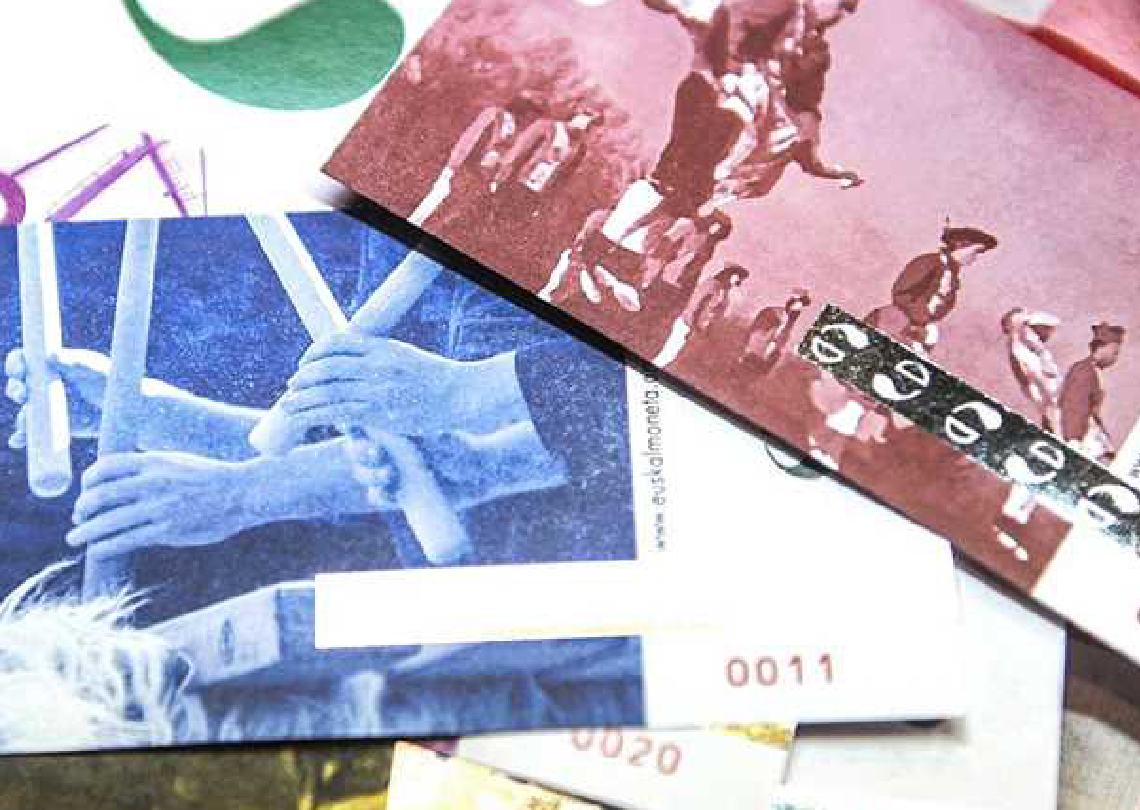Cash & Identity – A Basque Example
Paul Race

The introduction of the euro in January 1999, though welcomed by many as a unifying force in Europe, was not approved of universally. Don't worry, I'm not about to embark on a critique of the economic benefits or otherwise of a single currency. Rather than economists, the people I refer to were a generation of numismatists. For those individuals who collected stamps not a lot changed, but for coin and note collectors nothing would ever be the same. You see I came from a generation that could recognise not just flags but also currency denominations across the continent. Germany was the mark, Spain the peseta and Greece the drachma but my particular favourites were the Austrian schilling, Portuguese escudo and the still used Hungarian forint. Many a young child was delighted to receive the small change from a relative returning from holiday or more exotically, a business trip. You see the notes and coin represented part of a nation's identity. Indeed if someone brought you back a gift it was sometimes surprising and dare I say disappointing to find its country of origin was very different from the country visited. A note or coin, in contrast, was definitely 'of the country '.
For Europe, those days have gone; or at least I thought they had until I read an article about micro currencies on the BBC website (19 April 2019). The article explained how though the euro is now used in 19 countries there remain a number of micro currencies within the zone.
Indeed at a time when there has been talk of a global digital currency (LIBRA) and even the introduction of Monopoly sets deploying a digital currency rather than cash, in the Bayonne region of France’s Basque country a micro currency labelled the eusko is growing in importance and is viewed as an integral element in developing the region's cultural identity. In 2013 the eusko was launched as a euro equivalent micro currency and by 2018, eusko to a value of €1 million was in circulation. According to the BBC website 17 local municipalities and 820 shops accept eusko as legal tender.
The original aim of the launch was to 'reinvigorate enthusiasm for their cultural and linguistic roots and keep money within the French Basque region by supporting local businesses ' and it has been considered as a potential model for other regions.
Micro currencies are not something new. There are between 10,000 and 15,000 worldwide and 60 in France alone, where they were legalised in 2014. Such currencies aren't for everyone and there are significant costs and difficulties in becoming established. For some, for example, the whole idea of the euro was to eliminate transfer fees, so why would they pay to transfer euros to eusko!
What the above example shows, however, is that for some, cash can help establish a community and there remains a link between cash and identity. And for numismatists? Well there are now completely different currencies to collect.